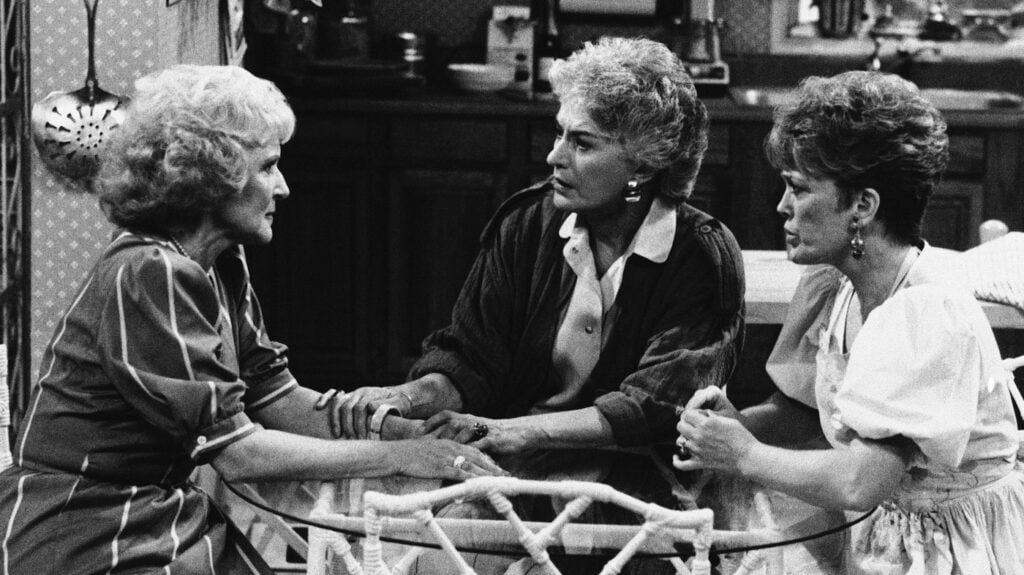The Golden Girls sitcom was created by Susan Harris and originally aired on NBC. The show ran for seven seasons in a span of seven years. While the show focused on the lives of four older women living in Miami, they also tackled real-life issues. Did you know about the episode on AIDS?
Betty White’s Character, Rose Nylund, had a brush with HIV. The episode entitled “72 Hours” tells us a story about how Rose learned that the blood she received through transfusion may have exposed her to HIV. This explained how HIV could potentially affect anyone.
The Golden Girls Show
Susan Harris’ creation received critical acclaim throughout the years it was running. The show won several awards, including the most coveted Primetime Emmy Award for Outstanding Comedy Series. They also won three Golden Globe Awards for the Best Television Series – Musical or Comedy. Each of the four stars also received an Emmy making it one of the only four sitcoms in the award’s history. (Souce: TV Guide)
Making a comedy series that revolved around older women came up while filming a TV special at NBC in August 1984. Selma Diamond and Doris Roberts appeared in a short parody promoting Miami Vice’s upcoming show. The parody was entitled Miami Nice and featured older adults living in Miami. Warren Littlefield, NBC’s Senior Vice President, was also one of the show’s executive producers. He was watching among the audience and was quite amused with their performance.
Littlefield then met with Paul Junger Witt and Tony Thomas about writing a pilot script for Miami Nice. Their regular writer declined the offer, so Witt asked his wife, Susan Harris, to write the pilot. Harris found the concept really interesting as it was a demographic that never had been addressed. (Source: Entertainment Weekly)
The “72 Hours” Episode
In the episode 72 Hours Rose Nylund, played by Betty White, receives a letter alerting her that she may have contracted HIV from a blood transfusion during her gallbladder surgery. She was advised to get tested, and as she waited for the results, worry and panic started to consume her.
White’s character covers a variety of misconceptions about HIV. At the time, people who were even associated with the disease were shunned by their peers. People of her age in middle-class society and are confirmed to be heterosexual should not acquire such illness. Her character says; Dammit, why is this happening to me? I mean, this shouldn’t happen to people like me. Blanche Devereaux, played by Rue McClanahan, responds to this in such a thoughtful manner.
AIDS is not a bad person’s disease, Rose. It is not God punishing people for their sins.
Blanche Devereaux, The Golden Girls
The episode aired in 1990, and back then, the testing for AIDS was still new. It was five years before the FDA-licensed approved blood testing kit came out. Since 1981, there have been over 100,000 deaths related to AIDS and almost a third of that number in 1990. Despite the efforts to educate the public, people believed in misinformation.
The episode even shows how people are quick to judge and discriminate against those who might have contracted the disease. Sophia Petrillo, played by Estelle Getty, separated herself from White’s character by using a separate bathroom and marking all her drinks with an “R.”
I know intellectually there’s no way I can catch it, but now that it’s so close to home, it’s scary.
Sophia Petrillo, The Golden Girls
This was not the only taboo topic that was brought up in the show. The Golden Girls were so good at bringing up issues that made people uncomfortable — racism, homosexuality, older female sexuality, sexual harassment, the homeless, addition, marriage equality, and more. (Source: NPR)
